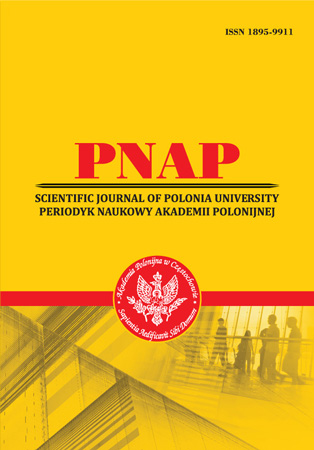THEORETICAL FOUNDATIONS FOR THE DEVELOPMENT OF HIGH SCHOOL STUDENTS’ MATHEMATICAL ABILITIES IN STUDYING ALGEBRA AND PRE-CALCULUS
Abstract
The article provides a theoretical analysis of psychological, pedagogical, and scientific- methodical literature in the context of the development of high school students’ mathematical abilities in studying algebra and pre-calculus. The purpose of the provided research is to determine the theoretical foundations for the development of high school students’ mathematical abilities in the process of studying algebra and pre-calculus. In accordance with the purpose, the most important psychological and pedagogical conditions are disclosed in the research work, contributing to a deep, quick and easy mastery of math knowledge and skills, as well as ensuring the development of individual psychological characteristics of high school students – their mathematical abilities. The scientific foundations for the implementation of the problem-based approach to the development of high school students’ mathematical abilities are described, the theoretical aspects of its implementation in the process of studying algebra and pre-calculus are determined. The content of the zones of proximal mathematical development is determined; their structure in studying algebra and pre-calculus by high school students is defined, the connection with the educational material content and components of mathematical abilities is revealed. To achieve the purpose, the following research methods were used: a theoretical analysis (problems of a problem-based approach to the development of mathematical abilities of high school students); a structured system analysis (for the problem-based system build-up), a contensive-theoretical generalization and design (in the formulation of conclusions and definition of subject matter for further researches).
References
2. Kalmykova, Z. I. (1979). Psihologicheskie principy razvivayushego obucheniya. [Psychological principles of developmental training]. Moscow: Znaniye. [in Russian]
3. Kruteckij, V. A. (1980). Psihologiya: uchebnik dlya uchashihsya ped. uchilish. [Psychology: a textbook for pedagogical school students] Moskva: Prosveshcheniye. [in Russian]
4. Lovyanova, I. V., & Slyusarenko, M. A. (2010). Zadachnyi pidkhid do vyvchennia rivnian matematychnoi fizyky yak zasib pidvyshchennia yakosti znan studentiv. [Problem-based approach to the study of mathematical physics equations as a means of improving the quality of students' knowledge]. Teoriia ta metodyka navchannia matematyky, fizyky, informatyky: zbirnyk naukovykh prats: v 3 t. Retrieved from: http://elibrary.kdpu.edu.ua/bitstream/0564/2289/1/2010_2%d0%b1.pdf. [in Ukrainian]
5. Morse, N. V., & Kuzminska, O.G. (2008). Kompetentnisni zadachi z informatyky. [Competence-based problems in computer science]. Naukovyi chasopys NPU imeni M. P. Drahomanova. Seriia № 2. Kompiuterno-oriientovani systemy navchannia: zbirnyk naukovykh prats, № 6(13). Retrieved from: https://fi.npu.edu.ua/files/Zbirnik_KOSN/13/03.pdf. [in Ukrainian]
6. Pavelkiv, R. V. (2009). Zagalna psihologiya: pidruchnik. [General psychology: textbook]. Kyiv: Kondor. [in Ukrainian]
7. Semenets, S. P. (2013). Rozvytok matematychnykh zdibnostei uchniv yak stratehichne zavdannia osobystisno oriientovanoho navchannia matematyky [Development of students’ mathematical abilities as a strategic task of personality-oriented training in mathematics] Osobistisno oriyentovane navchannya matematiki: sogodennya i perspektivi. Materiali IV Vseukrayinskoyi naukovo-praktichnoyi konferenciyi, с. 10–12. [in Ukrainian]
8. Semenets, S. P. (2015). Metodolohiia i teoriia rozvyvalnoho navchannia matematyky: monohrafiia. [Methodology and theory of developmental training in mathematics: Monograph]. Zhytomyr: O.O. Yevenok. [in Ukrainian]
9. Semenets, S. P., & Chuhunova, O. V. (2019). Rozvytok matematychnykh zdibnostei starshoklasnykiv u navchanni alhebry i pochatkiv analizu: realizatsiia zadachnoho pidkhodu. [The development of mathematical abilities in training high school students in algebra and pre-calculus: the implementation of the problem-based approach]. Naukovyi visnyk Uzhhorodskoho universytetu. Seriia: «Pedahohika. Sotsialna robota», 1 (44), 169–174. [in Ukrainian]
10. Serhieienkova, A. P., Stoliarchuk, A. A., Kokhanova, O.P., & Pasieka, O. V. (2012). Vikova psykholohiia: navch. posib. [Developmental psychology: training guide]. Kyiv: Center of Educational Literature LLC. [in Ukrainian]
11. Sliepkan, Z. I. Metodyka navchannia matematyky: pidruchnyk. (2006). [The methodology of training in mathematics: textbook]. Kyiv: Vyshcha shkola. [in Ukrainian]
12. Tarasenkova, N. A., & Lovyanova, I. V. (2015). Zadachnyi pidkhid do profesiino spriamovanoho navchannia matematyky u profilnii shkoli. [Problem-based approach to professionally oriented training in mathematics in a specialized school]. Problemy matematychnoi osvity. (PMO-2015). Retrieved from: http://elibrary.kdpu.edu.ua/xmlui/bitstream/handle/0564/2350/%D0%BF%D0%BC%D0%BE_2015.pdf?sequence=1&isAllowed=y. [in Ukrainian]
13. Zaichenko, I. V. (2016). Pedahohika. [Pedagogics]. Kyiv: Lira-K. [in Ukrainian]. [in Ukrainian]
Abstract views: 930 PDF Downloads: 495







